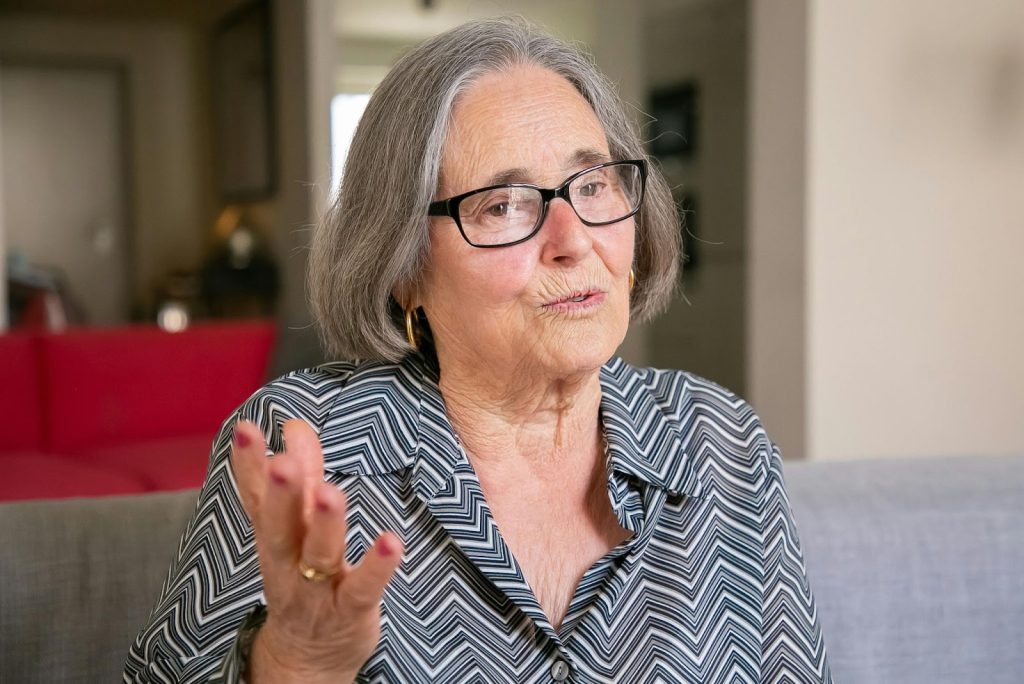What Does Suze Orman Say About Reverse Mortgages?

Who is Suze Orman?
Suze Orman is a renowned personal finance expert, author, and television personality who has dedicated her career to empowering individuals to make wise financial decisions. With a background in finance and investment, Orman has become a household name, offering practical advice and guidance to millions of people worldwide.
Born in 1951, Orman’s journey to financial success was not an easy one. She overcame numerous challenges, including a period of homelessness, before finding her calling in the world of personal finance. Through her determination and expertise, she has built a reputation as a trusted voice in the industry, authoring numerous best-selling books and hosting popular television shows.
Orman’s credentials are impressive. She holds a bachelor’s degree in social work from the University of Illinois and has worked as a financial advisor for several prominent firms. Her expertise spans a wide range of topics, including retirement planning, investing, debt management, and real estate. With a no-nonsense approach and a talent for breaking down complex financial concepts into easily understandable terms, Orman has become a go-to resource for individuals seeking practical financial advice.

What is a Reverse Mortgage?
A reverse mortgage is a type of loan that allows homeowners aged 62 and older to access a portion of their home’s equity as cash. Unlike a traditional mortgage, where you make monthly payments to the lender, a reverse mortgage works in the opposite direction: the lender makes payments to you, and the loan balance grows over time.
With a reverse mortgage, you retain ownership of your home, and the loan doesn’t need to be repaid until you move out, sell the property, or pass away. The loan amount is based on your age, the value of your home, and the current interest rates. Typically, the older you are and the more valuable your home is, the larger the loan amount you can receive.
To be eligible for a reverse mortgage, you must own your home outright or have a low remaining mortgage balance. The property must be your primary residence, and you must maintain the home, pay property taxes, and carry homeowner’s insurance throughout the loan term. Reverse mortgages are available for single-family homes, multi-unit properties (up to four units), and certain manufactured homes.

Suze Orman’s General Stance on Reverse Mortgages
Suze Orman, a renowned personal finance expert and author, has been vocal about her stance on reverse mortgages. While she acknowledges that reverse mortgages can be a viable option for some homeowners, she generally advises using it as a last resort, even though it is a legitimate tool that can be used.
One of Orman’s main arguments is that reverse mortgages should be reserved for extreme circumstances. This is due to the high origination fees, mortgage insurance premiums, and other closing costs associated with these loans. Additionally, interest accrues throughout the loan, which, over time, may drastically reduce the homeowner’s equity in the home.
Prior to choosing a reverse mortgage, Suze Orman has consistently stressed the significance of comprehending your financial requirements. This entails assessing your present financial status as well as your anticipated income, outlays, and future requirements. The objective is to guarantee that the reverse mortgage will provide the required finances without endangering the equity in the house or your capacity to make ends meet.

Pros of Reverse Mortgages: According to Suze Orman
According to Suze Orman, one of the primary advantages of a reverse mortgage is that it can provide retirees with additional income by allowing them to access a portion of their home’s equity. This can be particularly beneficial for those on a fixed income, as it can help cover living expenses, medical bills, or other costs during retirement.
Orman also emphasizes that reverse mortgages can enable seniors to age in place by providing funds to pay for home modifications, such as installing ramps or grab bars or covering the costs of in-home care. This can be a significant advantage for those who wish to remain in their homes as they grow older rather than having to move to an assisted living facility or nursing home.
Another potential benefit highlighted by Orman is that reverse mortgage proceeds are generally tax-free, as they are considered loan advances rather than income. This can be advantageous for retirees who may be subject to higher tax rates on other sources of income.
Furthermore, Orman notes that reverse mortgages can serve as a financial planning tool, allowing retirees to access a portion of their home equity while still retaining ownership of their property. This can provide peace of mind and financial flexibility during retirement years.
Cons of Reverse Mortgages According to Suze Orman

Suze Orman has been vocal about the potential drawbacks and risks associated with reverse mortgages. One major concern she has highlighted is the high upfront costs involved in obtaining one. These costs can include origination fees, mortgage insurance premiums, and closing costs, which can add up to thousands of dollars.
Another significant drawback Orman has emphasized is the accrual of interest over time. With a reverse mortgage, the interest on the loan compounds, meaning the total amount owed grows exponentially as time passes. This can result in a substantial debt burden for the borrower or their heirs, potentially eroding a significant portion of the home’s equity.
Furthermore, Orman has cautioned that reverse mortgages can create a challenging situation for heirs. If the borrower passes away or moves out of the home, the reverse mortgage typically becomes due and payable in full. This means that heirs may be faced with the difficult decision of either repaying the loan balance (which could be substantial) or losing the inherited property.
Orman has also warned about the potential for reverse mortgage lenders to engage in predatory practices, taking advantage of elderly homeowners who may not fully understand the terms and implications of the loan. She emphasizes the importance of thoroughly researching and understanding the fine print before entering into a reverse mortgage agreement.
Suze Orman’s Advice on When to Consider a Reverse Mortgage

According to Suze Orman, a reverse mortgage can be a viable option for seniors who are cash-poor but equity-rich. In other words, if you have limited retirement savings or income but own your home outright or have significant equity built up, a reverse mortgage could provide a much-needed financial lifeline.
Orman suggests considering a reverse mortgage if you’re facing high medical expenses or long-term care costs that your regular income cannot cover. The loan proceeds from a reverse mortgage can help pay for these expenses without depleting your other assets.
Additionally, Orman believes a reverse mortgage may be worth exploring if you’re struggling to make ends meet on a fixed income and need additional funds to cover basic living expenses like utilities, groceries, and property taxes.
However, Orman emphasizes that a reverse mortgage should be a last-resort option after exhausting other alternatives, such as downsizing to a more affordable home or tapping into other sources of income or assets. She also recommends consulting with a qualified financial advisor to ensure that a reverse mortgage aligns with one’s overall financial goals and situation.
Final Thoughts and Key Takeaways
Suze Orman’s perspective on reverse mortgages is nuanced. She emphasizes the importance of carefully evaluating one’s specific financial situation before considering this option. While she acknowledges that reverse mortgages can provide much-needed cash flow for cash-poor but equity-rich homeowners, she also cautions against using them as a last resort or a way to fund an extravagant lifestyle.
Orman’s main points on reverse mortgages can be summarized as follows:
- Reverse mortgages should be considered a last resort option, not a first choice.
- They can be a valuable tool for seniors who are house-rich but cash-poor and need additional income to cover basic living expenses.
- However, they should not be used to fund an extravagant lifestyle or pay for unnecessary luxuries.
- The fees and costs associated with reverse mortgages can be significant, and borrowers should carefully evaluate the long-term implications.
- Borrowers should work with reputable lenders and fully understand the terms and conditions of the reverse mortgage.
- Heirs should be aware of the potential impact on their inheritance and plan accordingly.
Ultimately, Orman emphasizes that every individual’s financial situation is unique, and the decision to pursue a reverse mortgage should be made after careful consideration of one’s specific needs, goals, and long-term financial plan. She encourages individuals to seek professional advice and thoroughly explore alternative options before committing to a reverse mortgage.





